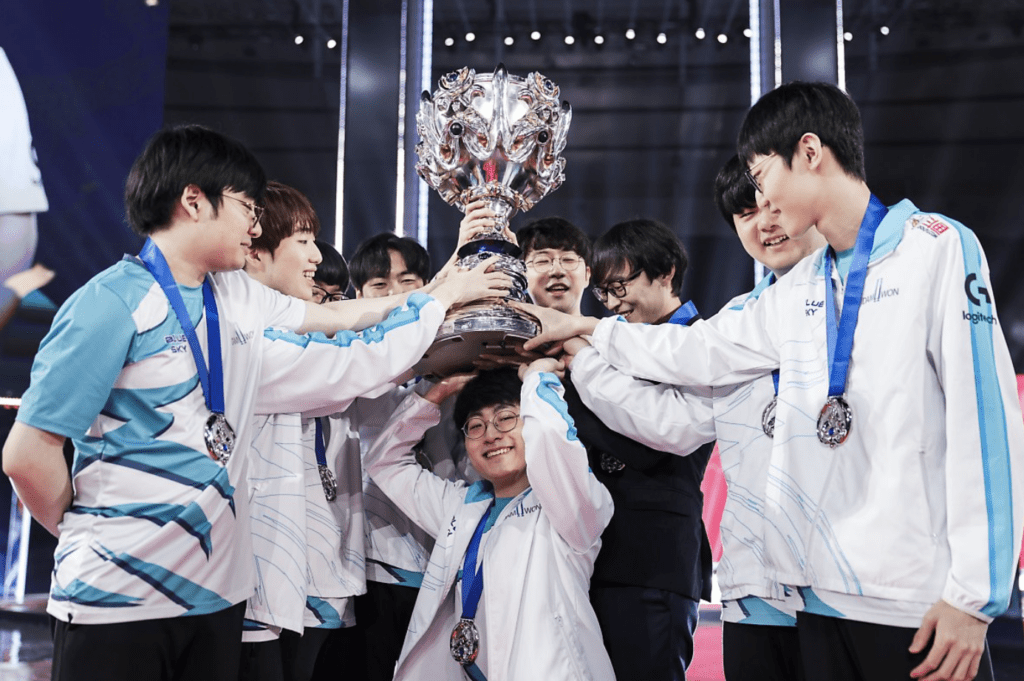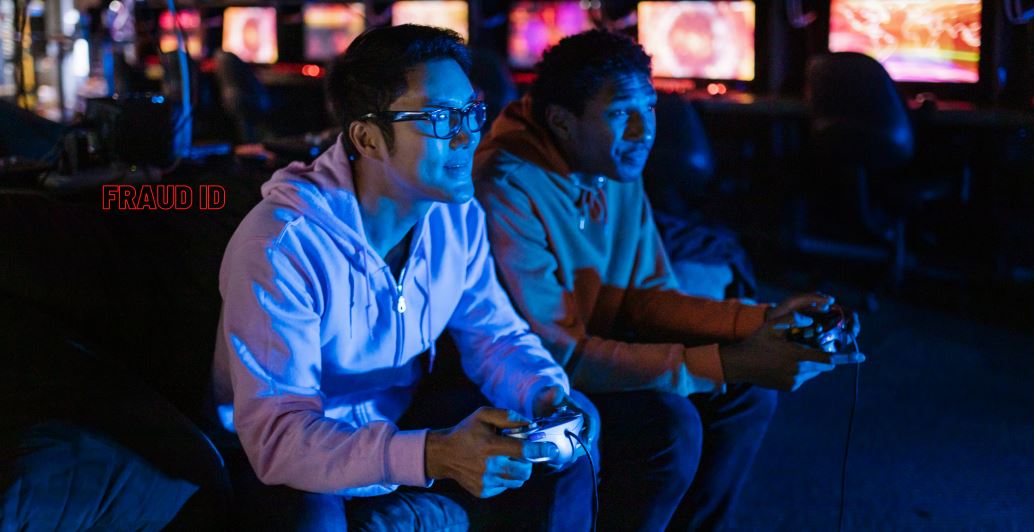If you like to play or watch online video games, you might have heard of the word esports, short for electronic sports.
While the word includes a wide range of activities related to gameplays, esports is generally perceived as “gamers competitively playing a video game”. Like other sports games do, esports also have professional players, leagues, teams, rules, and big prizes.
The industry has shown remarkable growth since the early 2000s, thanks to its expanded viewership and increased annual revenue.
According to Newzoo’s Global Esports and Live Streaming Market Report, the total number of esports audience, both occasional viewers and enthusiasts, was 397.8 million in 2019. Last year, Newzoo reported the number reached over 435.9 million.
The report added that the esports industry has generated more than $940 million in 2020, and expected it to make more than $1 billion, showing year-on-year growth of 14.5 per cent.
Industrial experts say that the esports industry will not show any signs of retractions for the next decade, and many can consider working in this industry in the near future.

A Brief History
The concept of competitive online gaming is not new to many, as it dates back to the 1980s. A game company Atari then held a Space Invaders tournament to find the best player of their popular game. But the competition remained at a local scale back then.
In the 1990s, when the use of the internet became more common with many households on the grid, online games that can fight with other players in real-time started to gain popularity. One of the most popular games then was Netrek, named as the first online sports game, which allowed a maximum of 16 players to play at a time.
Such multiplayer games became the foundation of esports tournaments, clubs, teams, and leagues. As the games received more attention from people, big, professional gaming organisations were established.
As of today, it is not difficult to find people who watch esports for fun, like sports occasional viewers and enthusiasts would do. Many tournaments are hosted and played on live-streaming platforms, such as YouTube and Twitch.
What Technologies Are Used?
The esports industry requires fast and stable internet connections, powerful computers with high-quality graphic cards, and perhaps a good microphone and real-time voice messengers to let players communicate with each other.
Esportsbets, an online gaming betting service provider, reported that players use high-quality keyboards and other equipment to enact commands promptly and accurately, to prevent any mishaps from delays or errors during games.
While it depends on the type of games that the players or the leagues play, games that are built-in virtual reality spaces would need players to wear VR headsets.
Esports competitions and events can be held in VR spaces as well. An esports organiser ESL, whose former name is Electronic Sports League, for example, held a VR event and invited viewers and players from many countries in 2016.
Some say that the advent of 5G network, which promises a faster, smoother internet connection, will also accelerate the development of the esports industry. Artificial intelligence is starting to be used by game developers to detect any cheating or hacking attempts.
Is Esports a Sport?
Fanni Bányai, a video game and esports researcher based in Hungary, tells 4i Magazine that there are ongoing debates on whether esports can be labelled as a sports activity.
“Previous studies on esports focused on the comparison of traditional sports and esports, highlighting their differences and similarities,” Bányai said.
“However, the critiques (that say esports are not sports) are less and less nowadays. Even sports federations and clubs discover the similarities among esports players and sports athletes in, for example, training, practice routines, and their physical and mental states.”
How Did It Become So Popular?
As for the reasons for its rapid growth, Dr Lee Sang-ho, a research professor from the Centre of Esports at Kyungsung University, says the younger generation plays a role.
“Young people are multitaskers,” he said during an e-mail interview with 4i Magazine. “They are both players and viewers of esports, [sustaining the industry to grow].”
Esports are a big money-maker in Asian countries, including China and South Korea, Lee explains. According to Newzoo, one-third of the international revenue of esports will be made from China this year.
“For example, China and South Korea were the countries that made into the final round of the 2020 League of Legends Championship,” he said. “A total of 160 million viewers from all over the world watched it, and the number of viewers is no less than the Champions League viewers.”
Lee says that sports tournaments and federations should confirm esports as a medal sport as well. Last December, the Olympic Council of Asia General Assembly confirmed it as a medal sport, and the Jakarta 2018 Asian Games featured esports as a demonstration sport.
“Esports can be defined as a mega-sport in terms of their viewership and popularity,” Lee said. “International Olympic Committee will not be able to turn a blind eye to younger people’s demand.”

Becoming a Professional Gamer
As the industry gets much attention, some people consider becoming a professional, full-time gamer who wins prizes or profits by playing games.
When asked about what differentiates professional gamers from hobbyists, Bányai says it is “mostly the mindset”.
“It, of course, includes the time and effort they put into this activity to develop themselves and master their skills,” Bányai said. “Esports players can enjoy gaming itself, but at the end of the day, esports is their job, not just a hobby.”
Being a professional gamer promises a higher salary and fame than other jobs, Lee says.
“It is the salary and popularity that you cannot think of at a young age,” he said. “Lee Sang-hyuk, who is better known as Faker, for example, allegedly earns more than 5 billion won ($4.3 million) a year.”
To become an esports gamer, people should build their portfolio with high in-game scores and rankings and apply for openings at esports companies and professional leagues.
“Capabilities of esports players are represented as in tiers or rankings in LOL, Overwatch, Battlegrounds, and other competitive games,” he said. “Professional teams recruit their players based on those records or tests. Players can apply for any openings [from those companies].”
It is not easy to become one, however, as the competition is fierce.
“Everyone dreams of becoming a professional esports player but it is not easy to join the team,” Lee said.
“For example, League of Legends Champions Korea has 10 teams in total. To join or remain in the league, esports players must be ranked in the top 200 in every event. In a game where approximately two million players participate, the probability of becoming or remaining as a player is 0.001 per cent.”
Professional esports players are often forced to retire at an early age, Lee says, as playing games require more prompt, quick reactions. They need to hold their rankings and scores high to keep their jobs.
It is not easy to change their vocations to other fields in the industry, too. “Only a few people become directors, coaches, streamers or commentators [after their retirement],” he added.
Bányai notes the amount of psychological stress put on professional gamers’ shoulders.
“It is important to stress that young gamers who enter this hypercompetitive gaming community have to deal with immense stress and expectations from team members, coaches, sponsors and the esports community itself,” she said.
“But their (intrinsic) motivations could help them to deal with these stressors.”
In her thesis titled “Career as a professional gamer”, published last August, Bányai found that people with a stronger sense of competitiveness, skill development, and social motives were more likely to decide to become professional esports players.
She adds that esports coaches and teams should be aware of what their players’ motives are in playing games for a living.
“Their intrinsic motivations, such as enjoying gaming and competition, can be a reliable indicator of long-term career goals and can help sponsors and esports teams in supporting their players.
“Coaches, psychologists, nutritionists in professional teams can help the players maintain mental and physical health, learn and practise coping strategies to wins and losses, develop a (strong) mindset, and deal with stressors,” she said.
Future Prospects
In Asian countries, multi-million dollar esports arenas are being built. More than 50 per cent of esports enthusiasts come from Asia and 16 per cent from Europe, a tech magazine Seoulz reported.
An official from a gaming industry, who wished not to be named, told 4i Magazine that the industry is growing fast across continents, including Europe and America.
“To be honest, I’m not worried about the esports industry,” Bányai said.
“Market researchers say esports business still grows exponentially, more and more sponsors enter this scene. Esports gaining popularity not just from (traditional) gamers.
“It is interesting and exciting at the same time, that the esports community is becoming more diverse, and there is less and less scepticism about it.”


